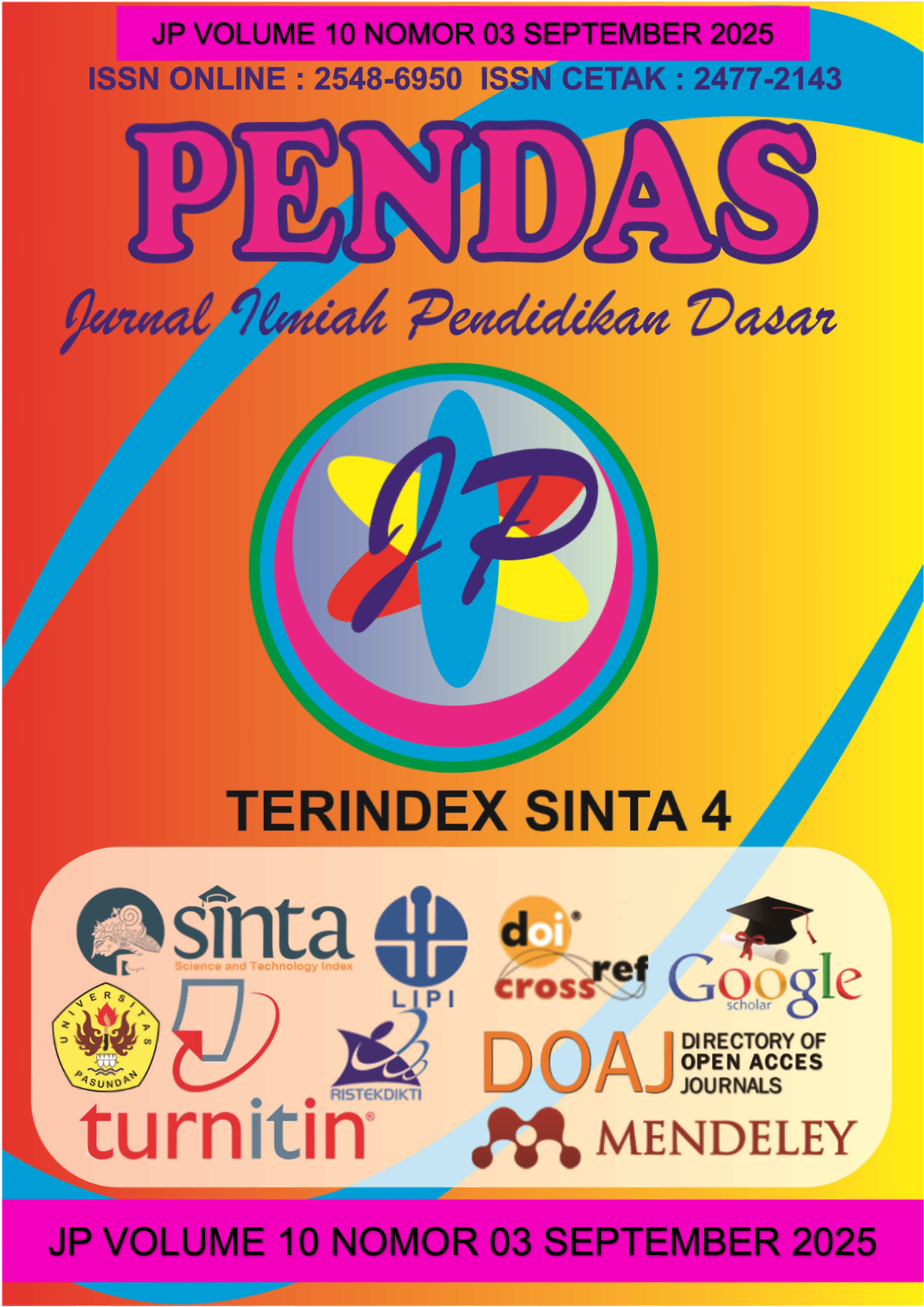STRATEGI MANAJEMEN PENDIDIKAN ANAK USIA DINI DALAM MENINGKATKAN KUALITAS LAYANAN PEMBELAJARAN
DOI:
https://doi.org/10.23969/jp.v10i03.31840Keywords:
Educational Management, Early Childhood, Strategy, Learning Services, PAUDAbstract
This study aims to describe and analyze the educational management strategies implemented at RA Diponegoro 2 Penaruban, Bukateja, Purbalingga Regency in improving the quality of early childhood learning services. The research employed a qualitative approach using a case study method. Data were collected through in-depth interviews, participant observation, and document analysis. The data were analyzed using the interactive model of Miles and Huberman, which includes data reduction, data display, and conclusion drawing. The results show that the management strategies at RA Diponegoro 2 involve participatory and needs-based planning, child-centered active learning implementation, and regular and constructive supervision. Furthermore, parental involvement and teacher capacity building are key components of the strategy to enhance the quality of education. The impact of these strategies is evident in the significant improvement of children's development, the quality of teacher-child interactions, and the increased participation of parents in educational activities. This study concludes that structured, collaborative, and development-oriented management can effectively improve the quality of learning services in early childhood education institutions.
Keywords: Educational Management, Early Childhood, Strategy, Learning Services, PAUD
Downloads
References
(TAM) Pada Penerimaan Aplikasi Sistem Manajemen Pendidikan Di Lingkungan Madrasah. Jurnal Tahsinia, 5(9), 1353–1369.
Alhabsyi, F., Pettalongi, S. S., & Wandi, W. (2022). Peran Kepemimpinan Kepala Sekolah dalam Meningkatkan Kinerja Guru. Jurnal Integrasi Manajemen Pendidikan, 1(1), 11–19.
Amon, L., & Harliansyah, H. (2022). Analisis kompetensi manajerial kepala sekolah dalam perencanaan peningkatan mutu pendidikan menengah kejuruan. Jurnal Ilmiah Manajemen Dan Kewirausahaan, 1(1), 147–162.
Bandura, A. (2001). Social cognitive theory: An agentic perspective. Annual review of psychology, 52(1), 1–26.
Baquero, R. (1996). Vigotsky y el aprendizaje escolar (Vol. 4). Aique Buenos Aires. https://www.academia.edu/download/42677435/Baquero_-_Vigotsky_y_el_aprendizaje_escolar.pdf
Baroroh, F., Nurrochim, N., Waruwu, N., Ratnaningsih, S., Maftuhah, M., & Asy’ari, H. (2024). Strategi Meningkatan Kualitas Pendidikan Anak Usia Dini: Studi Komparatif Manajemen RA Dan TK. Tarbiyatuna: Jurnal Pendidikan Ilmiah, 9(2), 131–152.
Eka, E., Asiah, S. N., & Laili, L. M. (2022). Strategi dan Hambatan Manajemen Pengelolaan Lembaga Pendidikan Anak Usia Dini. Dirasat: Jurnal Manajemen Dan Pendidikan Islam, 8(1), 90–101.
Erikson, E. (1995). Dialogue with Erik Erikson. Bloomsbury Publishing PLC.
Faidah, N. (2024). Manajemen Strategi Implementasi Program Pembelajaran Inovatif Pada Raudhatul Athfal Harapan Bunda Kecamatan Blahbatuh Kabupaten Gianyar. INDOPEDIA (Jurnal Inovasi Pembelajaran dan Pendidikan), 2(1), 84–96.
Fauzi, I. (2025). Manajemen pendidikan ala Rasulullah. Penerbit Aksara Shofa. https://penerbit.aksarashofa.co
Downloads
Published
Issue
Section
License
Copyright (c) 2025 Pendas : Jurnal Ilmiah Pendidikan Dasar

This work is licensed under a Creative Commons Attribution 4.0 International License.














































